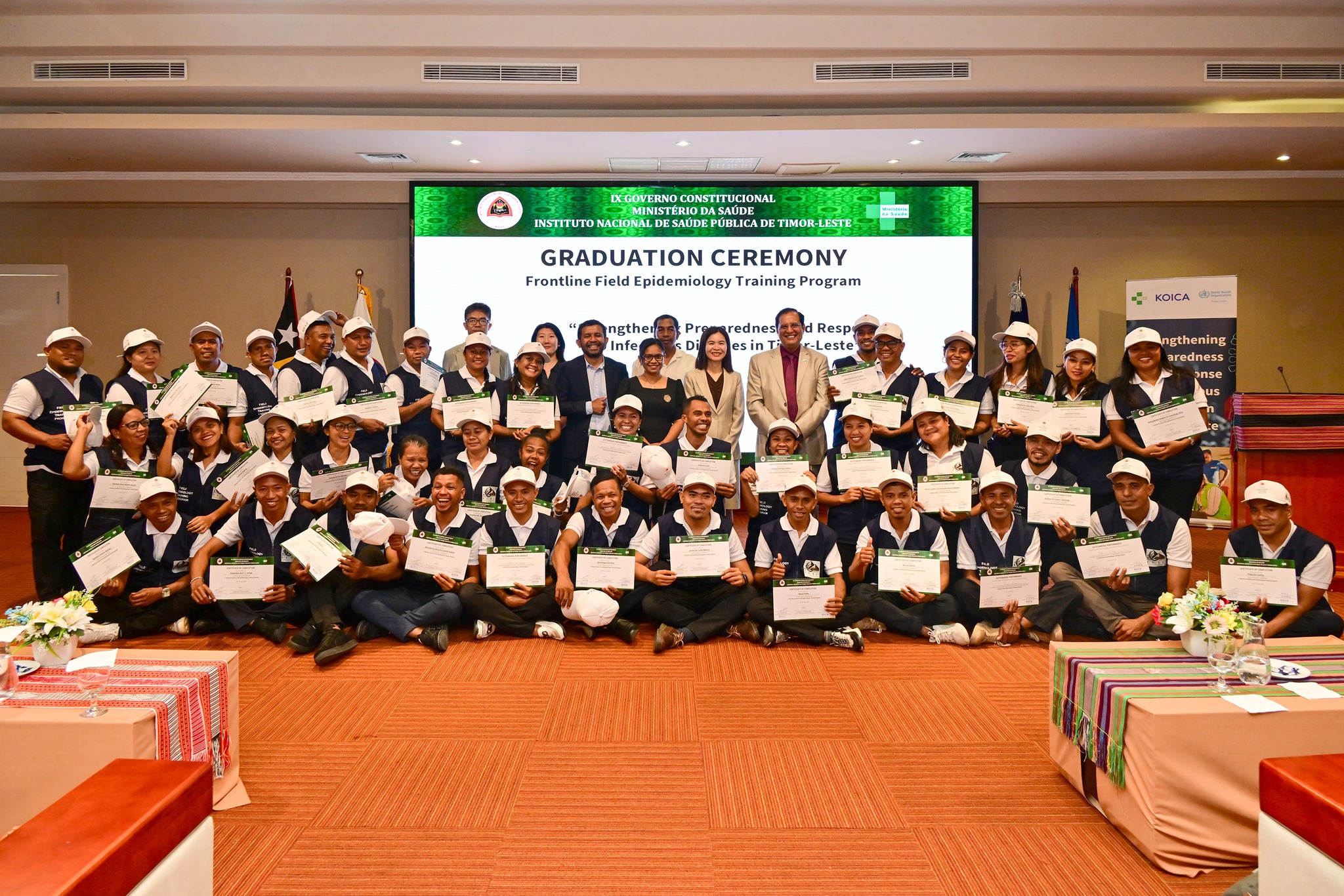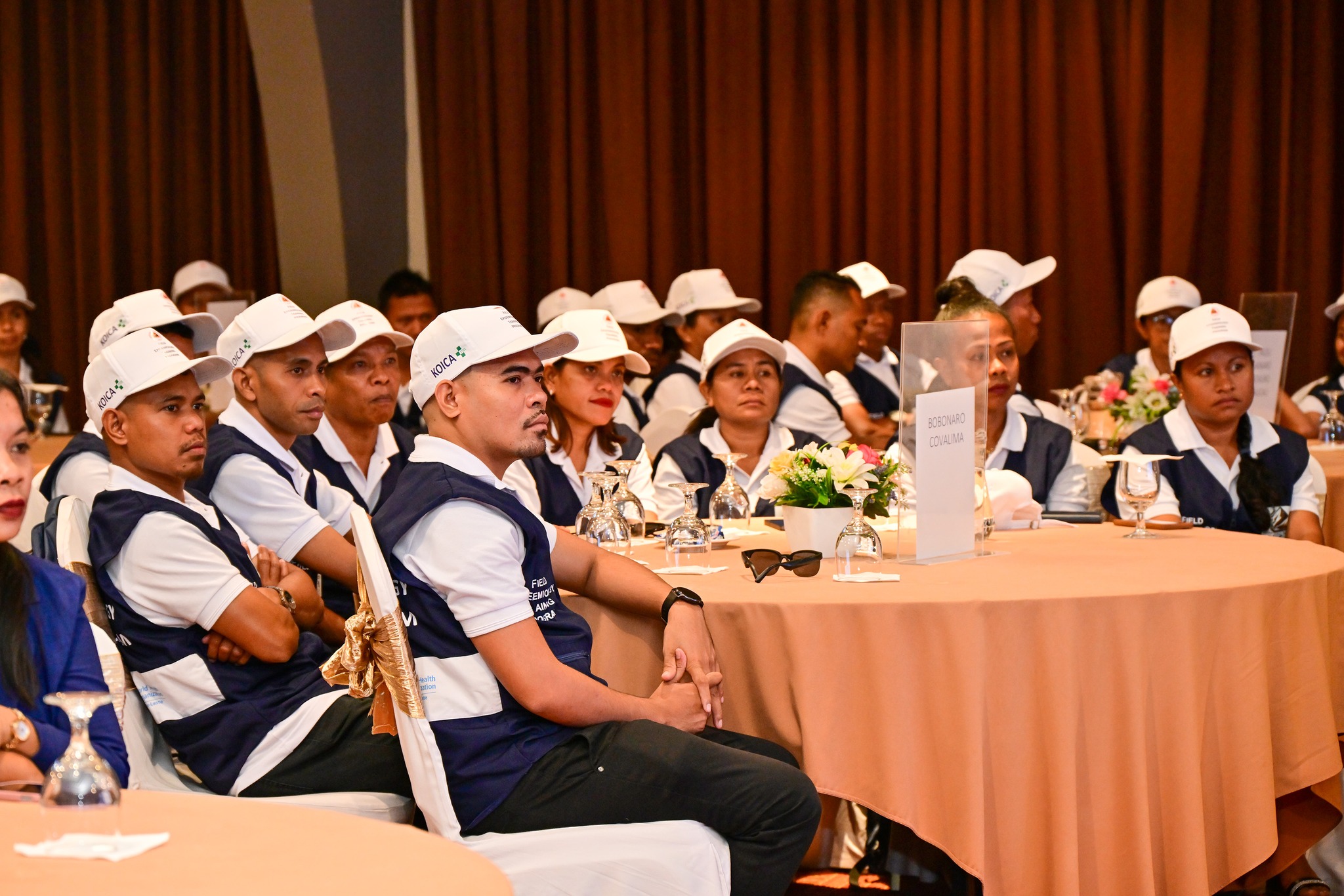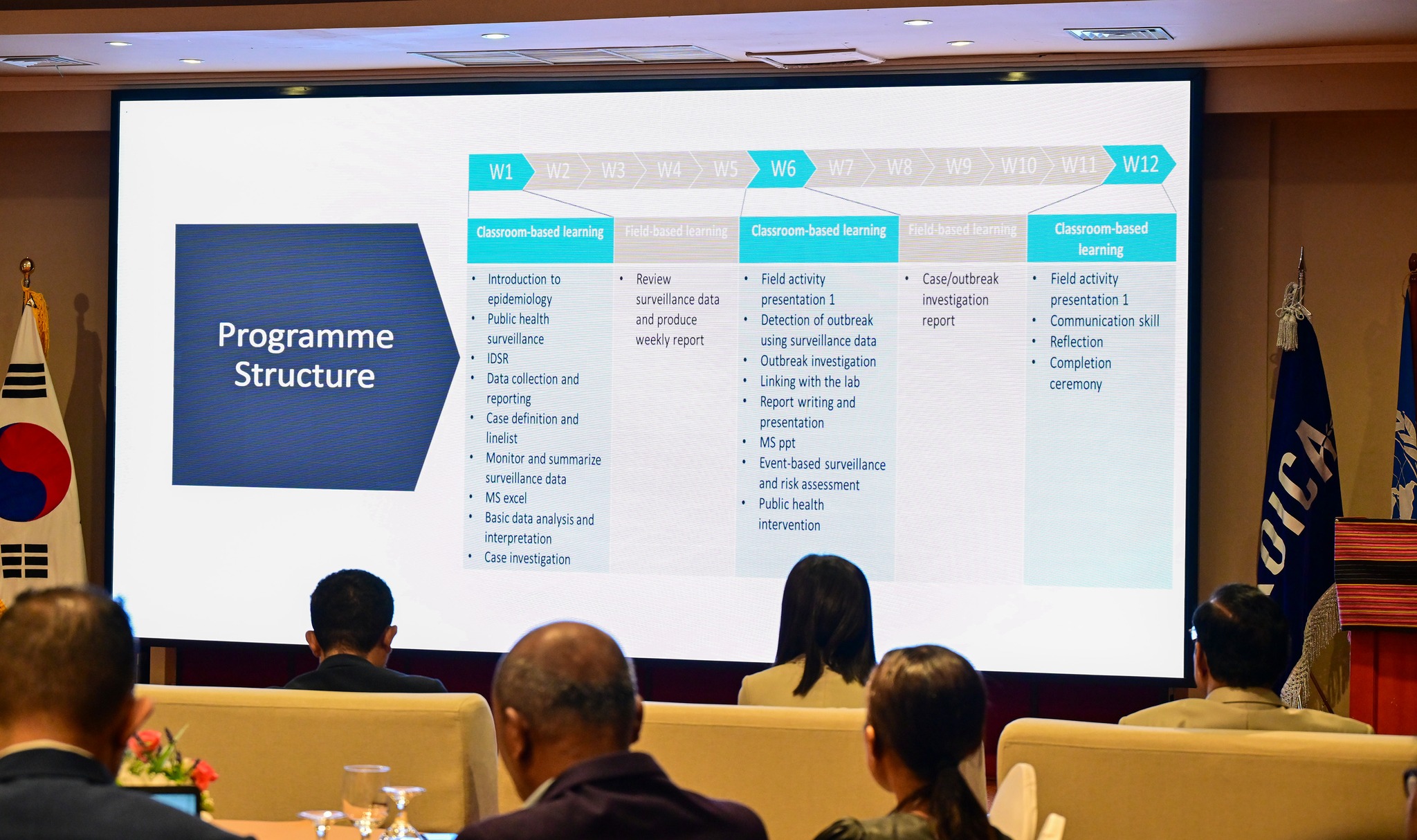Dili, June 5: Timor-Leste took a major step forward in health emergency preparedness as its first-ever cohort of 40 field epidemiologists graduated on Thursday in Dili. At the ceremony, graduates of the Field Epidemiology Training Program (FETP) received their certificates—formally recognising their readiness to detect, investigate, and respond to emerging health threats across the country.

Timor-Leste launched its FETP course in February 2025, prompted by key findings from the Joint External Evaluations in 2018 and 2024 that identified gaps in the country’s field epidemiology capacity. These 40 health professionals have completed an intensive four-month programme, learning how to spot unusual disease patterns, trace outbreaks, analyse data, and alert authorities when action is needed.
“These graduates will be expected to play a critical role at all levels—from sucos and municipalities to national health systems—tracking unusual disease patterns and responding quickly to protect communities,” said Dr Arvind Mathur, WHO Representative, commending the Ministry of Health for acting on the crucial JEE recommendations.
The FETP in Timor-Leste is implemented by the National Institute of Public Health (INSPTL) with support from WHO Timor-Leste, the Korea International Cooperation Agency (KOICA), and the Training Programs in Epidemiology and Public Health Interventions Network (TEPHINET).
Congratulating the graduates, KOICA Country Director Ms Youn Hwa Kang said they are now well-equipped to identify key health concerns, detect outbreaks early, and analyse surveillance data—critical skills for shaping informed response strategies. She added that while technical knowledge is vital, it is their dedication that will drive lasting change.
Dr Merita Monteiro, President of INSPTL, described the graduation as a proud and historic moment for Timor-Leste, made possible through strong partnerships with KOICA and WHO. She highlighted the expanding role of field epidemiologists, who will be deployed across all 13 municipalities and increasingly called upon to address not just infectious disease outbreaks, but also emerging challenges such as zoonotic diseases, antimicrobial resistance.
In July 2024, a Training of Trainers (ToT) for the Frontline FETP was conducted with support from SAFETYNET experts, WHO Timor-Leste, and WHO SEARO. This laid the groundwork for the launch of the three-month FETP training early this year.

“I feel proud and excited,” said Joao de Jesus Araujo, a general practitioner at a CHC in Baucau and one of the FETP graduates. “This training has given me the tools to detect and respond to outbreaks early. I now feel more confident and prepared to protect my community—especially if we face another pandemic in the future.”
A Ministry of Health representative shared that the programme is already expanding. Two INSPTL officials are currently pursuing a Master of Public Health with Advanced FETP at Gadjah Mada University in Indonesia. Four more are set to enroll in 2025, with a target of eight by 2026.

To sustain momentum, INSPTL will also house a dedicated FETP Training and Resource Centre—a national hub to strengthen public health capacity with the support from KOICA and WHO.
Dr Carl Reddy, Director of TEPHINET, in a video message, said that these graduates will now join a growing global network of FETP alumni contributing to stronger public health systems around the world.
With this graduation, Timor-Leste joins Thailand, Maldives, Bangladesh, Nepal and other countries in the WHO South-East Asia Region in successfully hosting a FETP programme.
